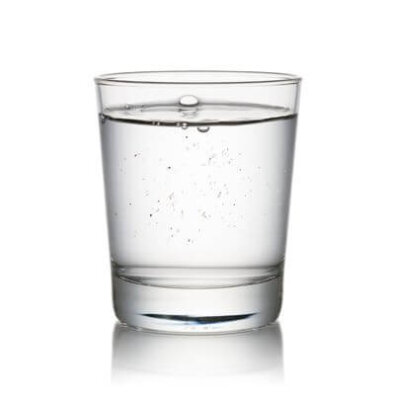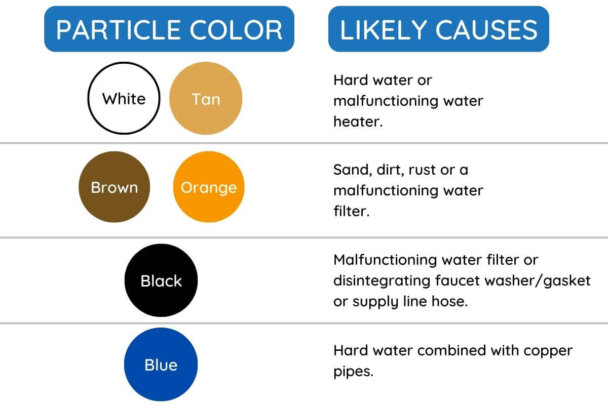White or brown, black or blue—particles in water come in many different colors, none of which are a welcome sight in your glass!
If you recently noticed any of these colored flakes in your water, then you’ve come to the right place. In this post, we’ll help you identify what the particles are and any threats they pose to your home and health. Then we’ll give you practical steps you can take to get rid of them.
So, keep reading to learn:
- What white, brown, black and blue particles are
- Whether or not particles in water are safe to drink
- How to remove specks from water
- Which water treatment devices will prevent this issue



